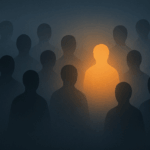The phrases Kenyans misuse every day
One thing we seem to sorely lack in this country is linguistic intelligence. We are acutely unaware of the power of words, and how to harness and use that power. As a result, we use the same old cliched phrases every day. These phrases are so overused that they actually cease to have meaning. We hear them, we ignore them, we carry on as before.
The writer George Orwell wrote: “(Language) becomes ugly and inaccurate because our thoughts are foolish, but the slovenliness of our language makes it easier for us to have foolish thoughts.” Most of our thoughts are indeed foolish, but by using so many pat, meaningless, banal phrases all the time, we are reinforcing the foolishness of our thoughts.
So here is a guide to Kenyan phraseology, to help you understand what foolish thoughts are behind the phrases that have become our common currency:
“Carry your own cross”: If you spend any amount of time listening to Kenyan politicians (why you would want to do that I don’t know but, hey, it’s a free world) there is one phrase you can be sure of hearing every single day: “Let everyone carry their own cross.” I imagine it evokes images of the suffering of Jesus when He was so unjustly crucified by a cruel world. Politicians like this symbolism: it paints them as long-suffering champions of the poor. If only.
What “carry your own cross” also conveys is that are many, many crosses to be carried, and no one can help anyone else carry theirs. As the phrase is most often used in the context of corruption, I can only agree with this reading: the crosses of graft and plunder abound. The strange thing is that no leader or man of means has ever carried one! Not one, in 45 years of self-realisation as a nation. Crosses are carried by the poor and by the honest in Kenya, not by the leeches that live off them. I can only hope that retribution of biblical proportions awaits those who keep mouthing this phrase.
“When/Where did the rain start beating us?”: This has become a favourite of the media, especially since we began our downward spiral early last year. Now it is a question asked all the time, and a very silly one it is too. If you Google it, your top results will all be Kenyan! The question presupposes that our woes fall from heaven, that they are the result of forces external to us, that we are the innocent victims of powerful but undeserved punishment.
What nonsense. The rain that is beating us is caused by each and every one of us. Heaven or Hell have nothing to do with it. The rain beats us because we deserve to be beaten, to be cleansed, to be deluged. We are a society that is in severe moral deficit. We don’t care about higher purpose, we don’t give a damn about our fellow humans, we steal and grab and cheat at every turn. We deserve the battering of the rain, and more. Ironically, if we carry on cutting down trees at the rate we are, we won’t have to worry about this question at all very soon…
“The customer is king”: The business world is not immune to banality. Every business you encounter in Kenya will chant a variant of this phrase, in unison. Not one will mean it. There should be a law in Kenya preventing companies from using these words, for they are in danger of believing they live up to it. As I have written elsewhere, the customer is no king in Kenya; he is a serf, a pauper, a vagabond.
If the customer were king, why would he be met with unsmiling, unschooled and unhinged customer assistants everywhere? Why would he be abused and ignored on a daily basis? Why would he complain until kingdom come without ever being taken seriously? Why would he encounter defective products and dismal service everywhere? Is that not what happens to you?
“The global economic meltdown has created challenging conditions”: Let me end with another example of how we want to believe our troubles are visited on us from elsewhere. The world is in financial turmoil: excellent! This gives everyone from the government to leading companies the excuse on which to pin their own under-performance. It’s not us, it’s the credit crunch. Every government statement, every company financial report will make reference to this in 2009.
As though our economy was not going to spiral downwards anyway. Did we not do enough with our own hands to wreck our livelihoods and resources at the beginning of last year, that we need a reason from outside? Is the outright concerted looting of public coffers that we see every day not enough to finish us? Are our companies making any effort to become world-class in the first place, that the world’s troubles should affect them?
Until we learn honesty in our discourse, we will keep spouting this foolishness.

Buy Sunny Bindra's new book
The X in CX
here »
Popular Posts
- Snakes and Ladders, AKA your lifeJanuary 25, 2026
- The man who passed by one markJanuary 18, 2026
- Make this your year of being boringJanuary 4, 2026
- How things fall apartFebruary 8, 2026
- Pretty isn’t the productFebruary 1, 2026















